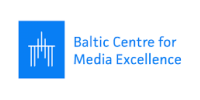EDMO Guidelines for Effective Media Literacy Initiatives
EDMO’s guidelines and principles for effective media literacy initiatives aim to help increase the quality of media literacy across Europe. They have been developed by EDMO’s Working Group on Media Literacy Standards and Best Practices, with input from the EDMO Hubs along with other practitioners and experts during a consultation process, and are available on the EDMO website.
The guidelines have been designed for use by anyone involved in the development of media literacy initiatives, including civil society, educators, policy makers, and those in the media or tech industries. In an area as complex and diverse as media literacy, there can be no one-size-fits-all approach, and media literacy initiatives vary considerably in scope, size, duration and focus. As a result, not all the guidelines will be relevant to all projects: it is entirely up to the user to select the most appropriate advice for their initiative.
While EDMO’s focus is disinformation, the guidelines can be applied across media literacy initiatives. For example, these might include news literacy initiatives, which will have a greater focus on the value of independent journalism in the media ecosystem; wider digital literacy initiatives, which will focus on explaining how digital media operate and how to use them; algo-literacy initiatives, which will focus on understanding the role of algorithms in our media consumption; or many more.
The guidelines are intended to be helpful in raising issues for consideration, based on the experiences of prior media literacy initiatives. Meeting them should not become a ‘tick box’ exercise or be used to limit flexibility in developing future initiatives. The guidelines are grouped under 12 principles, in three sections: development, delivery and review.
Development
A good media literacy initiative:
- has clearly defined goals and principles
- is empowering
- promotes critical understanding of the media ecosystem
- consultative and relevant
- takes an evidence-based approach
- is inclusive
- is ethical and accessible
Delivery
A good media literacy initiative:
- is transparent
- is prepared
- is adaptable
Review
A good media literacy initiative:
- endures
- reflects, shares and evaluates
The full guidelines document includes links to more detailed explanation, and further relevant resources and examples of good practice related to the different principles will be added. In the longer term, we intend to include localised examples and resources for application in national and regional contexts across Europe.







